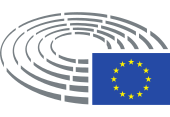
European Parliament
Directly elected legislature of the European Union / From Wikipedia, the free encyclopedia
Dear Wikiwand AI, let's keep it short by simply answering these key questions:
Can you list the top facts and stats about European Parliament?
Summarize this article for a 10 years old
The European Parliament (EP) is one of the legislative bodies of the European Union and one of its seven institutions. Together with the Council of the European Union (known as the Council and informally as the Council of Ministers), it adopts European legislation, following a proposal by the European Commission. The Parliament is composed of 705 members (MEPs). It represents the second-largest democratic electorate in the world (after the Parliament of India), with an electorate of 375 million eligible voters in 2009.[1][2][3]
European Parliament
| |||||||||||||||||||||||||||||||||||||||||||||||||||
|---|---|---|---|---|---|---|---|---|---|---|---|---|---|---|---|---|---|---|---|---|---|---|---|---|---|---|---|---|---|---|---|---|---|---|---|---|---|---|---|---|---|---|---|---|---|---|---|---|---|---|---|
| 9th European Parliament | |||||||||||||||||||||||||||||||||||||||||||||||||||
 | |||||||||||||||||||||||||||||||||||||||||||||||||||
| Type | |||||||||||||||||||||||||||||||||||||||||||||||||||
| Type | |||||||||||||||||||||||||||||||||||||||||||||||||||
Term limits | No | ||||||||||||||||||||||||||||||||||||||||||||||||||
| History | |||||||||||||||||||||||||||||||||||||||||||||||||||
| Founded | 10 September 1952; 71 years ago (1952-09-10) | ||||||||||||||||||||||||||||||||||||||||||||||||||
| Preceded by | Common Assembly of the European Coal and Steel Community | ||||||||||||||||||||||||||||||||||||||||||||||||||
| Leadership | |||||||||||||||||||||||||||||||||||||||||||||||||||
Alessandro Chiocchetti since 1 January 2023 | |||||||||||||||||||||||||||||||||||||||||||||||||||
| Structure | |||||||||||||||||||||||||||||||||||||||||||||||||||
| Seats | 705 | ||||||||||||||||||||||||||||||||||||||||||||||||||
 | |||||||||||||||||||||||||||||||||||||||||||||||||||
Political groups | |||||||||||||||||||||||||||||||||||||||||||||||||||
| Committees |
| ||||||||||||||||||||||||||||||||||||||||||||||||||
Length of term | 5 years | ||||||||||||||||||||||||||||||||||||||||||||||||||
| Salary | €8,932.86 monthly | ||||||||||||||||||||||||||||||||||||||||||||||||||
| Elections | |||||||||||||||||||||||||||||||||||||||||||||||||||
| Chosen by member state. Systems include:
| |||||||||||||||||||||||||||||||||||||||||||||||||||
First election | 7–10 June 1979 | ||||||||||||||||||||||||||||||||||||||||||||||||||
Last election | 23–26 May 2019 | ||||||||||||||||||||||||||||||||||||||||||||||||||
Next election | 2024 | ||||||||||||||||||||||||||||||||||||||||||||||||||
| Motto | |||||||||||||||||||||||||||||||||||||||||||||||||||
| In varietate concordia (United in diversity) | |||||||||||||||||||||||||||||||||||||||||||||||||||
| Meeting place | |||||||||||||||||||||||||||||||||||||||||||||||||||
 | |||||||||||||||||||||||||||||||||||||||||||||||||||
| Louise Weiss Strasbourg, France | |||||||||||||||||||||||||||||||||||||||||||||||||||
.JPG/300px-Hémycicle_du_Parlement_européen_(Bruxelles).JPG) | |||||||||||||||||||||||||||||||||||||||||||||||||||
| Espace Léopold Brussels, Belgium | |||||||||||||||||||||||||||||||||||||||||||||||||||
| Website | |||||||||||||||||||||||||||||||||||||||||||||||||||
| www | |||||||||||||||||||||||||||||||||||||||||||||||||||
| Constitution | |||||||||||||||||||||||||||||||||||||||||||||||||||
| Treaties of the European Union | |||||||||||||||||||||||||||||||||||||||||||||||||||
Since 1979, the Parliament has been directly elected every five years by the citizens of the European Union through universal suffrage. Voter turnout in parliamentary elections decreased each time after 1979 until 2019, when voter turnout increased by eight percentage points, and rose above 50% for the first time since 1994.[4] The voting age is 18 in all EU member states except for Malta, Austria and Germany, where it is 16, and Greece, where it is 17. Belgian citizens can request to vote from the age of 16 as well.[5]
Although the European Parliament has legislative power, as does the Council, it does not formally possess the right of initiative as most national parliaments of the member states do, with the right of initiative being solely a prerogative of the European Commission.[6][7] The Parliament is the "first institution" of the European Union (mentioned first in its treaties and having ceremonial precedence over the other EU institutions),[8] and shares equal legislative and budgetary powers with the Council (except on a few issues where special legislative procedures apply). It likewise has equal control over the EU budget. Ultimately, the European Commission, which serves as the executive branch of the EU, is accountable to Parliament. In particular, Parliament can decide whether or not to approve the European Council's nominee for President of the Commission, and is further tasked with approving (or rejecting) the appointment of the commission as a whole. It can subsequently force the current Commission to resign by adopting a motion of censure.[6]
The president of the European Parliament is the body's speaker and presides over the multi-party chamber. The five largest political groups are the European People's Party Group (EPP), the Progressive Alliance of Socialists and Democrats (S&D), Renew Europe (previously ALDE), the Greens/European Free Alliance (Greens/EFA) and Identity and Democracy (ID). The last EU-wide election was held in 2019.
The Parliament's headquarters are in Strasbourg, France,[9] and has its administrative offices in Luxembourg City. Plenary sessions are "normally held in Strasbourg for four days a month, but sometimes there are additional sessions in Brussels",[10] while the Parliament's committee meetings are held primarily in Brussels, Belgium.[10][11]